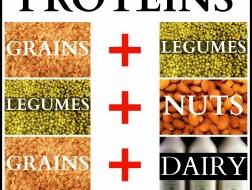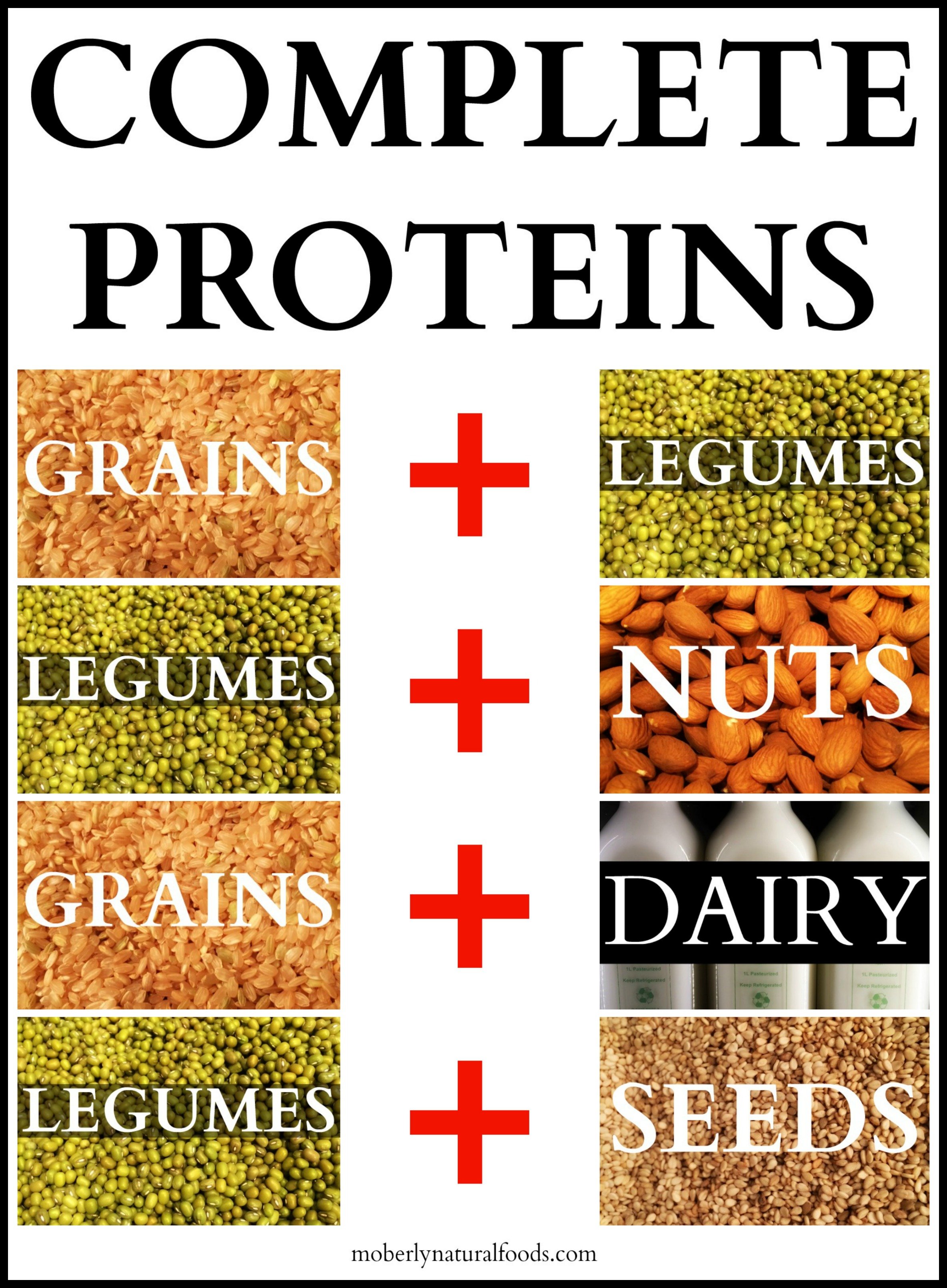Eating enough protein to build muscle for vegetarians

I have recently coached a few vegetarian clients. They were all interested in building more muscle and getting stronger but seemed to be struggling to put on muscle. What we changed in their diet was ensuring they got adequate protein from a variety of sources so as to cover the essential amino acids. We also changed some of their food choices, to cover some common deficiencies in vegetarians.
Vegetarian protein sources and the essential amino acids
First things first, the big question: Can you be a vegetarian and still build muscle? Absolutely! You might just have to pay a little more attention to your diet. The missing link for many vegetarians looking to build more muscle and get stronger and/or more athletic is usually a lack of adequate protein! As a vegetarian, not only do you need to make sure you are getting enough protein but that you are getting enough COMPLETE proteins in your diet.
There are 22 amino acids, all of which are combined together to make up protein. Now out of those 22 amino acids, 8 are essential and cannot be made by the body; they have to be provided by the food you eat. Foods that contain all of these 8 amino acids are called complete proteins, some examples are: dairy products, eggs, meat, fish and seafood, poultry etc. Plant or vegetarian foods usually provide incomplete proteins that often lack or are low in a particular essential amino acid.
If you are a vegetarian a good way to make sure you are getting all the essential amino acids is to eat foods that compliment each other. So where one food is lacking a particular amino acid, the other will make up for it. In other words, try to mix and match protein food sources throughout the day to balance each other out.
Some examples:
Grains + legumes = complete protein
Rice + legumes = complete protein
Corn + legumes = complete protein
Soybeans + seeds = complete protein
Legumes + nuts = complete protein
Dairy + grains = complete protein
It’s also important to note that you don’t always have to eat these protein sources together as “one meal”, as long as you eat a good variety of protein sources throughout the day then you should have your bases covered fine. If you, as a vegetarian, eat milk, yogurt and eggs, then you already have a complete protein in these foods so it will be easier for you.
For vegetarians athletes/those who train regularly, I highly recommend making sure you are eating at least 1 gram of protein per pound of bodyweight to supplement muscle growth. If you are a pure vegan I would bump that up a little bit more just to ensure you are getting enough.
Supplementing with protein powder!
A really easy way to bump up your protein if you are lacking is to include protein powder supplements. You can get whey protein if eat dairy, and if not you can get some good quality vegan protein powders such as pea/rice protein powder, hemp protein powder, etc. These are getting more common and popular these days so you should be able to find a good quality one at a pretty reasonable price. This will make a huge difference in convenience and making sure you cover your protein requirements.
Other common deficiencies for vegetarians
Following are some vitamin and mineral deficiencies that can be common with vegetarians and vegans. If you are an athlete or train regularly and you are struggling to put on muscle or have enough energy, even though you have your protein covered, it might be beneficial to get your blood work done to check if you have any other deficiencies such as the ones I will list below:
-Iron: Meat, fish and poultry contain iron as well as a special quality that helps your body absorb iron properly. If you are semi-vegetarian and eat chicken or fish you are in luck as chicken and fish contain iron. If not, because our bodies don’t absorb iron from veggies as easily as the iron that comes from animal products, it may be necessary to add to your diet an iron supplement that is well absorbed.
-Vitamin C: Because vit C helps your body absorb iron, it’s really important to have a diet rich in vit C foods, fruits and vegetables.
-Vitamin B12: This is one of the most common nutrients missing in the diets of vegetarians. That’s because it’s mainly available from animal products. Fermented foods like tempeh, miso etc contain some VitB but it’s not that much, so although they are really good to eat, it might be worth looking into eating B12 fortified foods or supplementing with a B12 supplement.
-Zinc: Zinc is another mineral that many vegetarians can be low on. This is because the foods that contain the most zinc are meat and seafood. So it might be a good idea to take a zinc supplement as zinc may be in short supply in your diet as a vegetarian.
Include a wide variety of nutrient rich foods to cover all your bases
This next point should really apply to everyone, not just vegetarians. But because vegetarians are cutting an entire food group out of their diet, they may have even more of a need for getting a good variety of nutrient rich foods in their diet.
As a vegetarian, if you make sure you have your protein sources covered, as well as complex carbs and healthy fats you should be able to build plenty of muscle. Fill up with healthy, nutrient rich and wholesome foods, and you will get enough vitamins, minerals and proteins!
Here are some "nutrient rich" vegetarian-friendly foods that you may want to add to your diet if you haven’t been eating much variety. Adding in a good variety of foods as a vegetarian (rather than limiting yourself to processed, convenient foods) will ensure you cover all your nutritional requirements and this will help guard against any nutritional deficiencies.
-Apricots
-Avocados
-Raspberries/blueberries
-Melon
-Cranberries
-Sultanas (raisins)
-Apples
-Figs
-Brussels Sprouts
-Carrots
-Tomato
-Onions
-Garlic
-Artichokes
-Ginger
-Broccoli
-Spinach
-Bok Choy
-Kale
-Beetroot
-Quinoa
-Buckwheat
-Sweet potato
-Wheat germ
-Chia seeds
-Flax seeds
-Lentils
-Nuts
-Yogurt/greek yogurt
-Milk, soy milk, almond milk
-Tofu and tempeh
-Eggs
-Olive oil, coconut oil
Of course everyone would benefit from eating more nutrient rich foods, so even if you aren’t a vegetarian that list above might give you some new ideas of healthy, nutrient rich foods you can add to your diet.
If you are a vegetarian and would like a bit of a help with diet coaching, figuring out your calories and macros, as well as vegetarian meal plans to ensure you are eating a balanced diet, I do offer vegetarian diet coaching. You can contact me at libbywescombe@gmail.com.
Join the other 10,000+ who get my best fitness, diet & mindset tips.



Comments